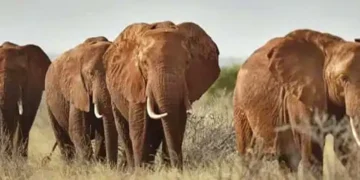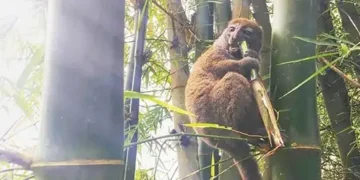Blitz Bureau
NEW DELHI:FARMERS in the Taita hills in southern Kenya, find elephants are a menace: they raid crops and occasionally injure or even kill people.
Farmer Richard Shika, 68, has had some close encounters. “One time, I was trying to chase away an elephant that was in my maize field, but it turned and charged me,” Shika remembers. “It stopped when it was right in front of me, and I managed to jump out of the way.” The area where Shika has his farm is almost surrounded by Kenya’s biggest National Park. The border of Tsavo East National Park is less than 10 km to the east, and Tsavo West curves around to the north, west and south. The parks have always been unfenced, allowing animals to migrate. Increasingly, that puts them in the path of humans.
Kenya Wildlife Service and conservation organisations tracking human-elephant conflict estimate that 30-35 people are killed every year in elephant-related incidents across the country.
With help from Save The Elephants, Shika is one of 50 farmers who have hung beehives from wires between poles around their farms. If an elephant touches the wire, the hives are rocked, disturbing the bees. It’s an army of tiny security guards that keeps elephants well away from the farm.
Changing crops can also make a difference. Sesame plants produce a scent that actively repels elephants. So for 70-year-old Gertrude Jackim, swapping out maize and green grams for sesame was a no-brainer.
“I’m ageing, so I can’t fend off the elephants or chase them away,” she says.
She is one of 100 farmers who have been supported to adopt sesame seed production.
































